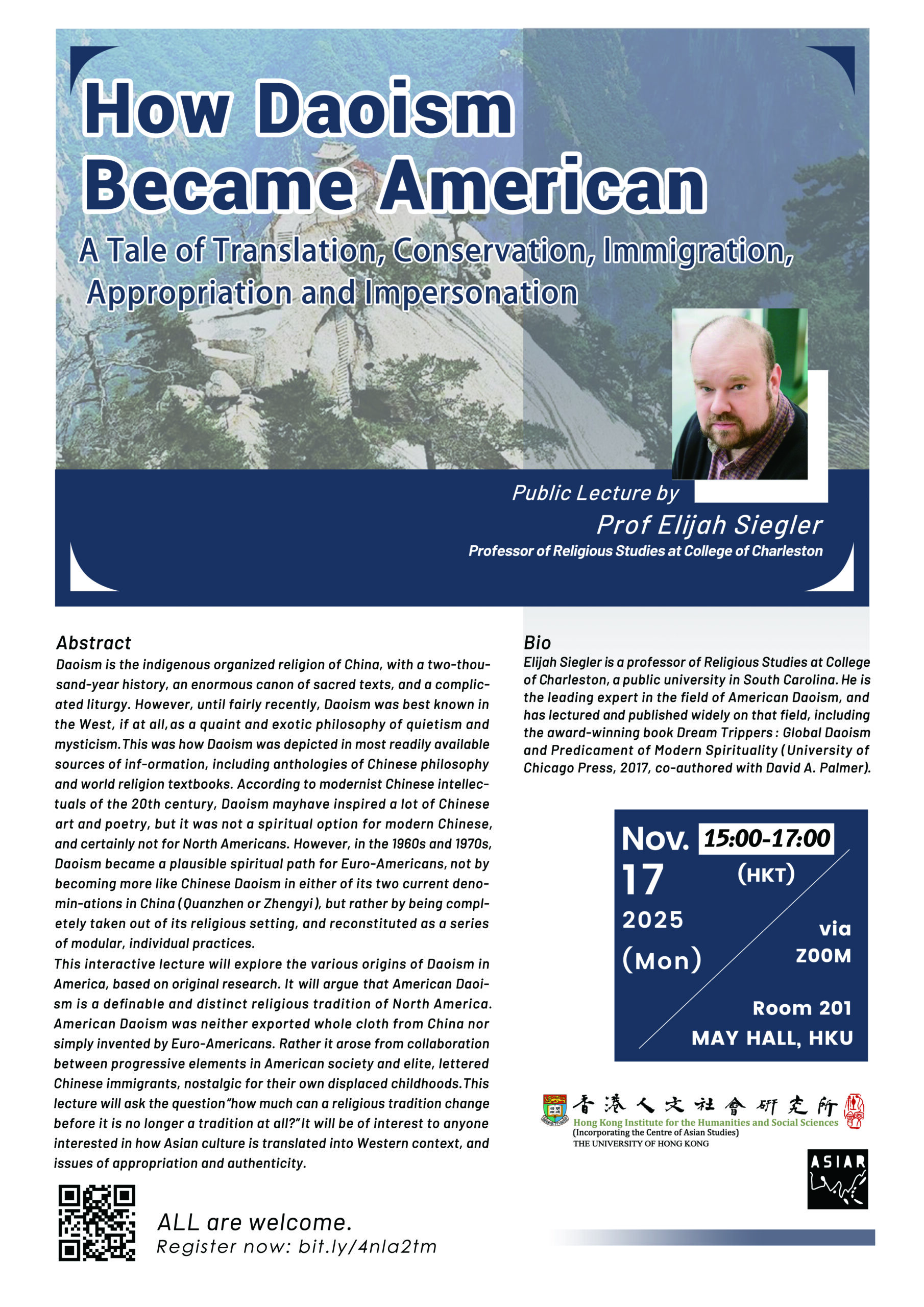
- This event has passed.
How Daoism Became American: A Tale of Translation, Conservation, Immigration, Appropriation and Impersonation
November 17, 2025 @ 3:00 pm - 5:00 pm

How Daoism Became American: A Tale of Translation, Conservation, Immigration, Appropriation and Impersonation
Date/Time: November 17, 2025, 15:00 – 17:00 (HK time)
Language: English
Venue: Rm 201, May Hall, HKU & Via ZOOM (Registration is required.)
Register for In-person and online participation: https://hku.zoom.us/meeting/register/MQ_Y4LmhRX6DcgkxNGRCNg
ABSTRACT
Daoism is the indigenous organized religion of China, with a two-thousand-year history, an enormous canon of sacred texts, and a complicated liturgy. However, until fairly recently, Daoism was best known in the West, if at all, as a quaint and exotic philosophy of quietism and mysticism. This was how Daoism was depicted in most readily available sources of information, including anthologies of Chinese philosophy and world religion textbooks. According to modernist Chinese intellectuals of the 20th century, Daoism may have inspired a lot of Chinese art and poetry, but it was not a spiritual option for modern Chinese, and certainly not for North Americans. However, in the 1960s and 1970s, Daoism became a plausible spiritual path for Euro-Americans, not by becoming more like Chinese Daoism in either of its two current denominations in China (Quanzhen or Zhengyi), but rather by being completely taken out of its religious setting, and reconstituted as a series of modular, individual practices.
This interactive lecture will explore the various origins of Daoism in America, based on original research. It will argue that American Daoism is a definable and distinct religious tradition of North America. American Daoism was neither exported whole cloth from China nor simply invented by Euro-Americans. Rather it arose from collaboration between progressive elements in American society and elite, lettered Chinese immigrants, nostalgic for their own displaced childhoods. This lecture will ask the question “how much can a religious tradition change before it is no longer a tradition at all?” It will be of interest to anyone interested in how Asian culture is translated into Western context, and issues of appropriation and authenticity.
ABOUT THE SPEAKER
Elijah Siegler is a professor of Religious Studies at College of Charleston, a public university in South Carolina. He is the leading expert in the field of American Daoism, and has lectured and published widely on that field, including the award-winning book Dream Trippers: Global Daoism and Predicament of Modern Spirituality (University of Chicago Press, 2017, co-authored with David A. Palmer).
ORGANIZER
ASIAR Research Cluster, HKIHSS, HKU